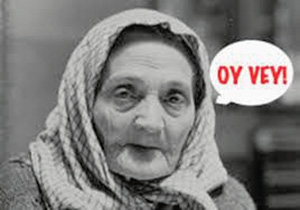
Passover is a relatively intense holiday in that it requires a drastic change in daily diet. We spend a week assiduously avoiding chametz and conspicuously limiting ourselves to matzah and anything else that is “Kosher for Passover.” When Passover ends, however, we revert to our old leavened lifestyle as if the matzah madness was just a figment of our imagination.
Jewish law has some very strict rules about the types of chametz that may be eaten after Passover. For example, if you own chametz before Passover and you forget to sell it before the holiday begins, then you may not eat it when the holiday is over. The basic rule begins with “ba’al yairo’eh uba’al yimotze,” which means that chametz “may not be seen or found.” (This also fairly describes how to win a game of hide-and-go-seek.) This anti-chametz rule is broadly interpreted to prohibit chametz ownership and the penalty for a violation is addressed by the Talmudic proposition known as “chametz sheavar alav haPesach,” which means that unsold chametz may not be used when the holiday ends. In other words, you cannot buy back that which you have not sold. An analogous sentiment applies to others facets of life, e.g., you cannot return from a vacation for which you did not depart, you cannot have your braces removed if you never had them put on in the first place and you cannot re-emerge from a hypnotic trance that you are not under.
The rule of “chametz sheavar alav haPesach” is not restricted only to the owner of the unsold chametz. It applies to any hungry Jewish soul in search of a post-Passover snack. For example, if a Jewish-owned supermarket fails to sell its chametz, then it will be sitting on some unsellable inventory. Then again, it also will be sitting on some unsellable inventory if it tries to sell Passover food after Passover ends. Yes, kosher for Passover muffins are delicious on Passover but as soon as the holiday ends, you probably could not pay people to eat them. This condition can be referred to as the “Cinderella Effect” because after the holiday, Passover food transforms back into unappetizing just like after midnight Cinderella’s stage-coach transformed back into a pumpkin.
Even if you sold your chametz before Passover, you may not start eating it immediately after the holiday ends. You must wait for the chametz to be officially bought back. That interim period can last at least an hour or two so don’t plan any post-Passover pizza parties without first confirming with your rabbi. And if you don’t invite your rabbi to your post-Passover pizza party, then your rabbi likely will be in no rush to buy back your chametz.
Some scholars contend that after Passover, you may begin to purchase chametz from a supermarket when there is at least a 50% chance that the store purchased the chametz after the holiday. Determining this with certitude is nearly impossible so, for safety, some scholars suggest waiting until Lag B’Omer, 25 days from the end of Passover. Of course, the other way of making this determination is by simply asking the supermarket. They should tell you because you are not asking for classified or proprietary information like why the produce and refrigerated aisles often are on opposite sides of the store. One theory is that it is designed to make you walk through or by all of the other sections of the store and to increase the likelihood of impulse-buying items like cholent-flavored potato chips.
On its face, the concept of buying back chametz seems a bit odd because under normal circumstances people do not sell food and then buy it back. Chances are that after you purchase items from a supermarket, the store manager does not call you at home and say: “Hey there, loyal customer. I know this might sound a little strange but yesterday we sold you a loaf of bread, a quart of milk and a stick of butter… and now we’d like to buy them all back. Name your price!” That never happens and customers seldom attempt returning such items because in our society there is an unwritten and unspoken rule against the returning of food, especially perishable products. While a department store will allow you to return a sweater, slacks or even a pair of shoes, receipt or no receipt a supermarket will rarely allow you to return cholent, kasha varnishkes or tzimmes. Following Passover, however, chametz is routinely returned to the original owner, a unique exception to the “no returns” rule. Thus, after Passover, it might be appropriate to wish someone “many happy returns.”
Final thought: It is better to sell your chametz than to sell yourself short.
By Jon Kranz













